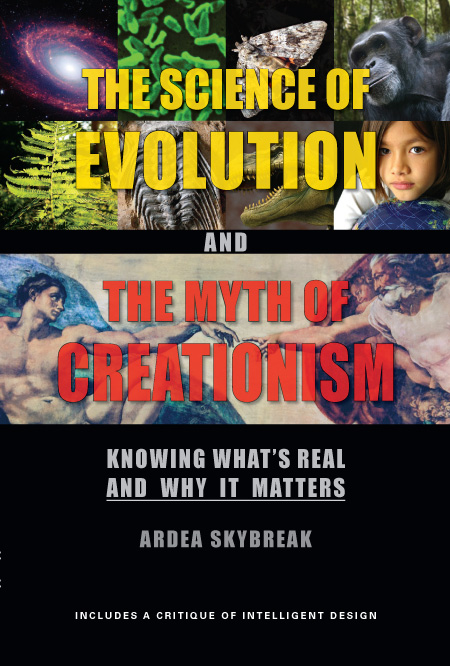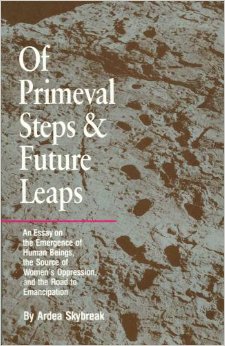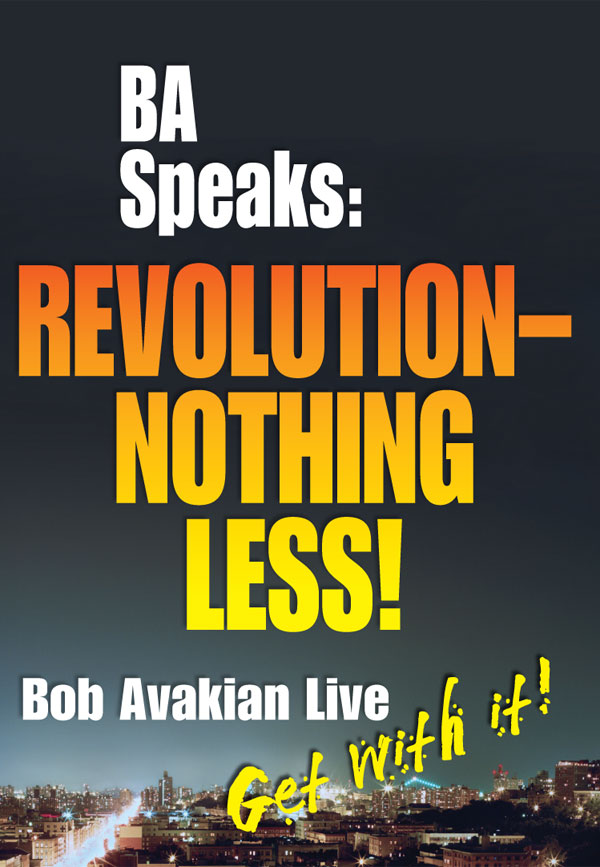A Note from Ardea Skybreak to the Shulamith Firestone Memorial Conference
"I am particularly encouraged by your appreciation of, and emphasis on, the importance of theory. This is all too rare in the world today."
October 14, 2013 | Revolution Newspaper | revcom.us
On October 5, 2013, the Shulamith Firestone Women's Liberation Memorial Conference On What Is to Be Done was held in New York City. It was hosted by members of Redstockings, a radical women's liberation group founded in 1969. As the organizers explained, "This August marks a year since the death of Shulamith Firestone, a cherished Redstockings founder. The jolting finality of losing her was a powerful reminder of all that she had given us, she and a revolutionary era of feminism. How fast we moved forward in the late 1960s—how fast we're losing ground these days in so many of the fundamental areas. Why? At the memorial for Shulamith last September, Kate Millet said that the movement had lost its nerve. But how to get it back? Deeper theory and creative strategy seemed a way forward."
Ardea Skybreak, author of The Science of Evolution and the Myth of Creationism: Knowing What's Real and Why It Matters, Of Primeval Steps and Future Leaps: An Essay on the Emergence of Human Beings, the Source of Women's Oppression, and the Road to Emancipation (available from Revolution Books and from amazon.com), and other important works, was invited but unable to attend this conference. Reprinted with her permission below is the correspondence she wrote to be shared with the conference.
A Note from Ardea Skybreak to the Shulamith Firestone Memorial Conference
Dear friends,

Order at Insight Press
First of all, I simply want to express my heartfelt thanks for inviting me to this year's Shulamith Firestone Memorial Conference. While I am unfortunately not able to attend due to other obligations, I am definitely honored to have been invited to participate, and I very much look forward to hearing and reading about the nature and scope of what I am sure will be very interesting and important discussions and deliberations. I am particularly encouraged by your appreciation of, and emphasis on, the importance of theory. This is all too rare in the world today. I very much hope the work of this Conference will contribute to opening up some new pathways to productive future engagements as well, with each other, and with the world!
If I may be so bold, allow me to contribute the following points, which I feel are very important if we are to truly advance the fight for the emancipation of women (ALL women) as a crucial and critical component of the struggle for the emancipation of all of humanity, throughout the world.

Available at Revolution Books - New York City. Also available at amazon.com.
1) Today especially, we really need SCIENCE—a truly methodical, comprehensive scientific approach to the analysis of both problems and solutions. Empiricist subjectivity just won't cut it. As someone who was trained as a professional scientist in the natural sciences, I have always been dismayed by the widespread ignorance in society about what science actually is, as a method and approach, and by the reluctance of so many to seek to systematically apply the methods of science to the problems of society (including the historically constituted and systemically maintained oppression of women as women, in the U.S. and all around the world). We need the evidence-based analyses and syntheses of science in order to more fully and more correctly determine the origins of the oppression of women, its historical evolution through different forms of societal organization, its persistence and profound integral connection with the way society functions to this very day, and what are the actual material bases which might allow us to break out of this once and for all, and the world over. Good scientists understand that there is material reality (which actually exists, and has motion and development, independently of what particular human beings might imagine it to be at any given time!), and that it is possible to work on more correctly understanding that reality, and its dynamics, in all its contradictoriness, by systematically applying the methods of science. And good scientists actually understand that the very contradictoriness of any given thing in material reality (the "unevenness within" so to speak) also points to the very basis for transformation and change of that reality. This is certainly evident in medical research and all the fields of natural science in which people seek to achieve not only understanding but also transformation. The same applies to the problems of society. But we will miss all that if we proceed to base what we think and what we do on partial and unsystematic descriptions of portions of reality, or on what individuals, or even large groups of people, might happen to believe or favor at a particular time. We need to dig into the macro patterns, the ways in which the political/economic and cultural features of the oppression of women are historically evolved and continue to be deeply intertwined with (and necessarily integral to) the functioning of today's societal systems, including the globally predominant system of capitalism/imperialism. But we need nothing less than genuinely scientific materialism to understand and break through all that and to find the ways to truly dig out the oppression of women not just at the surface but at the very root!

Because of Bob Avakian and the work he has done over several decades, summing up the positive and negative experience of the communist revolution so far, and drawing from a broad range of human experience, there is a new synthesis of communism that has been brought forward — there really is a viable vision and strategy for a radically new, and much better, society and world, and there is the crucial leadership that is needed to carry forward the struggle toward that goal.
2) To first of all deny (as is commonly argued today) that there even is such a thing as objective reality (which exists independently of what any individual might think at any given time) and that this objective reality can be deeply studied and understood, and then to claim that it is somehow wrong to even dare try to CHANGE how people currently think and act (or fail to act!) on the basis of what one has been able to learn and understand about the larger patterns of social reality, and to argue instead that there is no greater or more valid truth than that which stems from individual personal experience or individual narrative (which we are not even supposedly allowed to ever judge or criticize) is not simply nonsense—it is poisonous nonsense. I feel very strongly that we should not be at all reluctant to argue with each other and others throughout society about such critical issues of philosophy and epistemology because it really matters to whether we will be able to go forward in the struggle for the full emancipation of women, and all of humanity—or not. I am sick to death of the relativistic and exceedingly individualistic norms which prevail in academia and elsewhere these days—norms which, perhaps ironically, are often tyrannically insisted upon in all too frequent attempts to literally rule out of order any genuine intellectual contestation about the problems of society on a societal level, including as pertains to the oppression of women, as women, here and the world over, and deems "oppressive" any healthy challenging and sorting out of differences over how people should or should not think and also act in relation to all this.
While individual experience can be important and can also shed light on larger social phenomena, our approach should not be to primarily proceed from "individual narratives" and such partial individual experiences but to look for and proceed from the larger and deeper patterns as well as the common shared experience of millions and actually billions of women. Our goal should not be reduced to individual "self-empowerment" but should seek to encompass the emancipation of ALL women everywhere. And as a key and critical necessary component of the emancipation of humanity as a whole. If that's not what we're going for, then I for one am not interested.
3) Finally, I think everyone should really dig into what I consider to be the most advanced and radical overall social theory of our times—the new synthesis of communism developed by Bob Avakian, which has been developed over more than 40 years of hard work. This new synthesis, which has developed and evolved over such a significant period of time, has worked through the lessons of the 1960s and '70s, and of the first early waves of socialist revolutions in the Soviet Union and China, distilled the best of these lessons, and then also taken it much further—on every important social question, including the question of the oppression of women and how best to achieve actual emancipation, that would be neither tokenistic nor easily reversed.
In my opinion you cannot be serious about social change, in any arena, at this point in human history and yet not engage this truly substantive body of work and richly developed comprehensive theory of emancipation. Do it with a critical spirit, with an open mind, with science and with heart. A good place to start digging into Bob Avakian's work is the film of an extensive talk he gave recently (BA Speaks: REVOLUTION—NOTHING LESS! Bob Avakian Live) and BAsics, a book of short quotations and brief essays excerpted from numerous longer works. Be sure to check out as well the Constitution for the New Socialist Republic in North America (Draft Proposal), which is both a sweeping and a concrete envisioning of what a new society based on this new synthesis might actually look like. Go to revcom.us for more information on these and numerous other works by Bob Avakian. I feel this work needs to be very much part of the broader societal discourse on change and emancipation, and that engaging it will help to focus up many more questions about how to go forward from today.
In conclusion let me just thank you again for inviting me to participate. I hope my few comments above may be useful to you in some capacity. I really wish you all the best with the upcoming Shulamith Firestone Memorial Conference, and I can't wait to hear all about it!
Here's to much good and principled and productive wrangling over important issues of our times and how to advance the emancipation of all women, everywhere! Because it matters.
With warm greetings to all involved,
Ardea Skybreak
If you like this article, subscribe, donate to and sustain Revolution newspaper.

